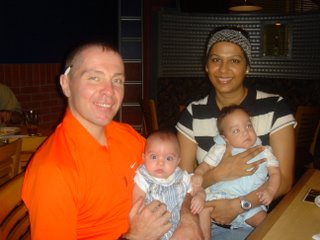(Courtesy of slowtwitch.com)
 On race day, Brownlee came out of the water in 2nd place and mounted his bike just in front of Gomez. Gomez held within a few seconds of Brownlee on the bike, but was off form and fell back to 8th on the run. Brownlee started the run with a conservative first kilometer, but then rocketed away to a 29:30 run which was just 23 seconds slower than his Olympic gold-medal winning run at London -- and good enough for a 22 seconds margin of victory. Alistair's winning time of 1:47:16 was also 1 minute 31 seconds faster than his brother Jonathan's winning time at this race last year. Jonathan was unable to defend his 2012 San Diego title due to a still-healing ankle injury.
On race day, Brownlee came out of the water in 2nd place and mounted his bike just in front of Gomez. Gomez held within a few seconds of Brownlee on the bike, but was off form and fell back to 8th on the run. Brownlee started the run with a conservative first kilometer, but then rocketed away to a 29:30 run which was just 23 seconds slower than his Olympic gold-medal winning run at London -- and good enough for a 22 seconds margin of victory. Alistair's winning time of 1:47:16 was also 1 minute 31 seconds faster than his brother Jonathan's winning time at this race last year. Jonathan was unable to defend his 2012 San Diego title due to a still-healing ankle injury. After the medal ceremony, Brownlee elaborated on a few issues in the media zone.
Were you surprised by your performance on the run? "I think the whole race was good. I was quite nervous before this race. It’s the first race I've done properly since the Olympics last year. I've been pretty busy and took a lot of time off from training due to the appendix surgery. In mid January, I started a bit of training. I literally didn’t know how I was going to go. Even if I had come 2nd, 3rd, or 4th today it would have been great just to do that first race. The fact that I won it and I won it like that is just brilliant."
How did you feel about the bike breakaway today? "I was in the initial group. I think there were 8 of us. I was trying to motivate the guys to work and get going. I don't understand why those guys aren't pushing me hard, because I can win the race on the run. But these guys' best chance for a good result is by working together on the bike. I don't understand why they weren't working. It doesn’t make any sense to me whatsoever. If I can try and get rid of a few of these guys by attacking up the road, and maybe two or three guys have the sense to join me in a group of three or four, we can work well together and we might get away. But none of them came with me when I tried to go up the road. Every time I tried anything I was just getting pulled back. So, a very, very tactically negative race today."
 Were you surprised that you did so well on the run today? "Purposely my tactics weren't to go out too hard on the run and I expected to have some people with me on the first k or so. Normally I run a very fast first kilometer but I didn't quite know what my fitness was going to be. When I got to 2k, I found myself on my own and running at a controlled pace. Which was very good."
Were you surprised that you did so well on the run today? "Purposely my tactics weren't to go out too hard on the run and I expected to have some people with me on the first k or so. Normally I run a very fast first kilometer but I didn't quite know what my fitness was going to be. When I got to 2k, I found myself on my own and running at a controlled pace. Which was very good."
Did it feel good when you could walk to the finish line rather than battling with Javier Gomez to the end? "Yes, it did feel good. I have had some massive battles with Gomez and Jonny in the past which left me absolutely dead at the end. Today wasn't one of those. I fully expected if Gomez was in top form it would have been one of those days."
Were you looking for Gomez during the run? "Gomez is a great one. But I could see on the bike he wasn't his normal self. He is one of those guys who would push but he just looked pale and weak. I think he was not in good shape today and I hope he gets better because he is a fantastic competitor."
And then Alistair Brownlee was taken off to doping control.

.JPG)
.png)



